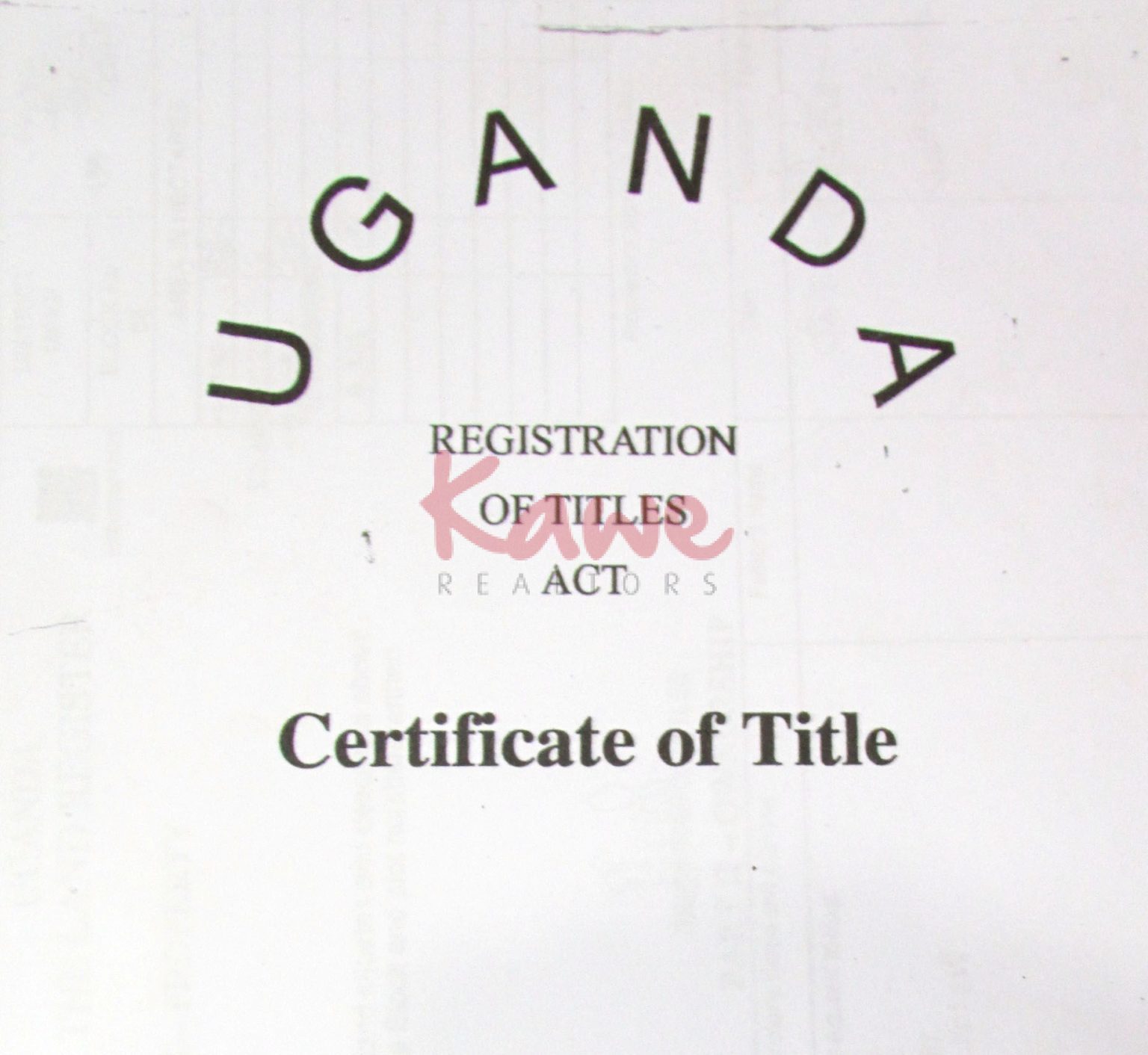Understanding Land Ownership in Uganda: Freehold, Leasehold, Mailo and Customary Tenure for Buyers and Investors

Uganda’s real estate sector is expanding rapidly, with growing demand for land for sale in Kampala, plots for development, and houses for sale in premium neighborhoods such as Kololo, Nakasero, Naguru, Muyenga, Bugolobi, Mbuya, Bukoto, Munyonyo, and Kigo. At the same time, industrial growth continues to attract investors to leasehold land in Namanve, Luzira, and Kampala Industrial Area.
To invest safely, it is important to understand Uganda’s land tenure systems. The 1995 Constitution of Uganda and The Land Act (Cap 227) recognize four ( 4 ) types: Freehold, Leasehold, Mailo, and Customary. Each system carries distinct ownership rights and legal obligations.
1. Freehold Tenure in Uganda
Freehold tenure provides landowners with absolute and perpetual ownership. Holders of freehold titles are free to use, transfer, lease, or mortgage the land without time restrictions.
Freehold tenure is common in districts outside the Buganda region, where Mailo land dominates. It is available only to Ugandan citizens and is considered the most straightforward form of ownership.
Key Features:
- Permanent ownership, without expiry.
- Full rights to sell, transfer, or develop the property.
- Titles registered with the Ministry of Lands, Housing and Urban Development.
- Strongly recognized by banks and financial institutions.
Illustration:
A Ugandan citizen purchasing a freehold plot in Bukoto can register the title in their name, construct residential apartments, and pass ownership to heirs without limitations.
2. Leasehold Tenure in Uganda
Leasehold tenure is a contractual arrangement in which a landowner (government, institution, or private individual) grants another party land-use rights for a defined period, usually 49, 99, or 999 years, subject to agreed terms.
This system is commonly used for industrial developments, commercial properties, institutional projects, and expatriate housing. It is also the only form of tenure available to foreigners in Uganda.
Key Features:
- Renewable at the end of the lease period, subject to compliance.
- Requires payment of ground rent or premium.
- Land remains the property of the lessor.
- Often tied to specific development conditions.
Illustration:
An international company establishing a factory in Namanve Industrial Park typically acquires a 49-year lease from the Uganda Investment Authority, renewable upon fulfilling agreed conditions.
3. Mailo Tenure in Uganda
Mailo land is a uniquely Ugandan tenure system created under the 1900 Buganda Agreement. It granted land ownership in perpetuity to individuals and institutions in Buganda.
Mailo land is concentrated in Central Uganda, especially Kampala, Wakiso, Mukono, and Masaka. Although ownership is perpetual, much of this land is occupied by lawful or bona fide tenants (bibanja holders), who enjoy protected occupancy rights.
Key Features:
- Perpetual ownership registered with the Ministry of Lands.
- Co-existence with tenants who hold lawful rights of occupation.
- Evictions are permitted only after lawful compensation and due process.
- Requires thorough legal and survey checks before acquisition.
Illustration:
An investor purchasing Mailo land in Wakiso District must first determine whether there are lawful occupants. Compensation or settlement of tenancy rights must be completed before development or transfer of ownership can proceed.
4. Customary Tenure in Uganda
Customary tenure is the most traditional system of landholding in Uganda, rooted in clan and community practices.
It accounts for about 70% of Uganda’s land, especially in rural areas. While recognized by the Constitution, customary land is often held communally or through family lineage. Owners may apply to the District Land Board to convert customary land into freehold, which provides stronger legal protection.
Key Features:
- Governed by community or clan traditions.
- May be family-based or communal.
- Can be converted into freehold for formal transactions.
- Less secure for large-scale investment unless converted.
Illustration:
A family holding customary land in northern Uganda can seek conversion to freehold through the District Land Board, enabling them to sell or subdivide the land for development with a registered title.
Summary of Uganda’s Land Tenure Systems
- Freehold: Absolute, perpetual ownership; best for Ugandan citizens.
- Leasehold: Time-bound but renewable; ideal for foreigners, institutions, and industrial investors.
- Mailo: Perpetual but complex; requires careful due diligence due to tenant rights.
- Customary: Traditional and widespread; convertible to freehold for more formal ownership.
How Kawe Realtors Assists Buyers and Investors
We provide trusted and professional real estate services to both individuals and institutions navigating Uganda’s land market. Whether you are a first-time buyer seeking a house for sale in Kampala, an investor acquiring prime land in Namanve or Kampala Industrial Area
Our expertise includes:
- Verification of land titles in Uganda with the Ministry of Lands.
- Conducting due diligence for buyers of Mailo land in Kampala, Wakiso, and Mukono.
- Advisory services for foreigners acquiring leasehold land in industrial hubs such as Namanve, Luzira, and Kampala Industrial Area.
- Linking clients to prime plots for sale in Kampala’s most prestigious neighborhoods, including Kololo, Nakasero, Naguru, Muyenga, Bugolobi, Mbuya, Bukoto, Munyonyo, and Kigo.
- Assisting clients in finding houses for sale in Kampala, apartments for sale in Kampala, houses for rent, and serviced apartments in premium locations.

